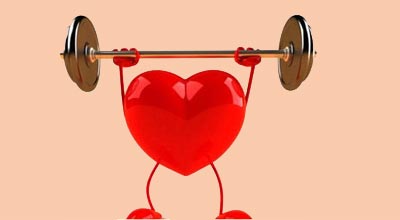Heart-related problems are the UK’s biggest killer. Coronary heart disease causes 73,000 deaths annually, while over 30,000 people suffer from a sudden cardiac arrest per year.
These statistics highlight just how important it is to look after your heart. Every day, your heart works hard for you, beating 100,000 times and pumping 23,000 litres of blood around your body – but are you returning the favour?
To ensure you’re taking all the right steps to look after your heart health, we’ve shared some of our easy tips to help get your started.
Your diet
The type of food you eat is so important to your heart. A healthy and balanced diet will help keep your weight, blood pressure and cholesterol under control. It can also reduce the risk of diabetes and help cut down on the risk of certain cancers.
You should try and eat a diet which contains the following:
- Five portions of fruit and vegetables
- Starchy foods such as bread, potatoes, pasta and rice
- Non-dairy sources of protein such as meat, fish, eggs and beans
- Some milk and dairy foods
- A small amount of fat and sugar
You should attempt to reduce your total saturated fat intake and only have foods like butter, hard cheese, fatty meat, biscuits and cakes in moderation. You should also limit your sugar intake, as foods that contain lots of sugar also contain calories which can lead to weight gain.
When people are looking to lose weight, they often try faddy crash diets. These may help you lose weight quickly, but they are more often than not unsustainable and can limit your body from getting the nutrients it requires. Stick to a balanced diet, and in time you will see better results that will be long lasting.
How active are you?
Staying fit and active is key to looking after your heart. Not only is it proven to reduce heart disease and improve how your heart works, but regular activity can also help lower your blood pressure, help with weight management and maintain your cholesterol levels.
It can be a challenge to start exercising if you don’t already enjoy it, but you don’t have to start running marathons straight away. Initially, you should aim to do at least 10 minutes of activity per day. This means activity that makes you feel warm and slightly out of breath, so anything from jogging and cycling, to climbing stairs or brisk walks.
Smoking
If you are a smoker, giving up cigarettes is so important when looking after your heart. Smokers are more than twice as likely to have a heart attack compared to those who have never smoked, and even those breathing in secondhand smoke can develop heart problems.
The ingredients in cigarettes can damage the lining of your arteries, increase your blood pressure and heart rate, reduce the amount of oxygen your blood can carry to your heart, and even increase the development of blood clots.
If you stop smoking, after a year of being smoke free your chances of a heart attack falls to about half of that of a smoker. Even though it can be hard, it’s never too late to stop smoking, and your body will quickly thank you for it.
Drinking alcohol
Drinking more than the recommended alcohol allowance can have a really damaging effect on your heart, as well as other parts of your body.
Drinking more than 14 units per week can lead to increased blood pressure, weight gain and higher risk of heart disease. Cutting back on the alcohol is necessary to ensuring your heart’s strength.
There are so many healthy, delicious recipes out there, as well as fun ways to keep active, so looking after your heart doesn’t need to be a chore. If you try to eat a balanced and healthy diet, keep active, avoid smoking and drink within the recommended alcohol limits, you will have the best chance of keeping your heart healthy.
Rosa Mitchell is a guest blogger from defibshop, the UK’s leading independent defibrillator supplier. Check out their Visual Guide to a Healthy Heart for more information on heart health.
